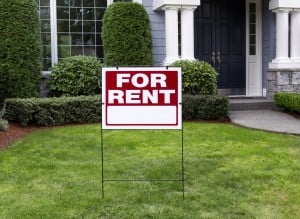With growing concern over housing affordability plaguing would be first home buyers, the issue of whether to rent or buy is more hotly debated now than it has ever been.
Sure there are some incentives for first home buyers including the First Home Loan Deposit Scheme, but as property prices continue to rise, many young Gen Y’s are concerned that they may have missed their opportunity to get onto the property ladder altogether.
At the same time some commentators insist that Australian housing markets are just too expensive so it makes more financial sense to rent.
So what is the best way to go?
Do you rent or buy?
The truth is there are pros and cons for both options and ultimately, it’s up to you to work out whether renting or buying a home suits your personal and financial situation best. 
The most obvious advantage to renting is flexibility; as a tenant you can freely relocate from home to home and area to area once your lease expires.
But because of the costs associated with buying and selling property, as a home owner you have less flexibility when it comes to moving house.
It costs about 4% of the sale price of your home to sell (agents fees, advertising, etc) and about 6% of the purchase cost to buy (stamp duty, government fees, loan establishment fees, etc).
Secondly, renting can often be a cheaper alternative to buying…
Particularly if like many young professionals you prefer the lifestyle and career opportunities that inner and near city locations provide.
Many young people can’t afford to buy in these locations, but can afford to rent there.
Even though rents are rising, more often than not your monthly rental payments will be less than what your mortgage repayments would be if you were to buy a comparable property.
Finally…
One of the big bonuses to renting is that you avoid costly maintenance, repair, rates and insurance bills that go hand in hand with home ownership.As a tenant, it’s your landlord who is responsible for taking care of such ongoing expenses.
On the other hand, renting has many disadvantages:
The most obvious being uncertainty as to whether you will be able to remain in a home you have grown fond of.
Tenants have very little say in how long they occupy a rental property.
Ultimately this is up to the landlord, who can ask you to move once your lease expires and can also terminate your lease early for a number of reasons.
Essentially the home is never really yours.
For instance when you rent, your property manager and landlord can come into your property at any time, as long as they provide sufficient notice and have good reason, such as regular inspections which can happen as frequently as every two or three months.
You also cannot make any changes to the property to improve your living space or even put pictures up on the wall without the landlord’s permission.
The other consideration as a tenant is the rising cost of renting.
Even though renting may currently be the cheaper option, rents will always continue to rise in line with the increasing values of properties.
Further, you never stop paying rent, whereas most people will pay off their mortgage within 25 to 30 years.
When you buy a home however, you have a certain sense of stability.
You choose how long you wish to live there (as long as you make your repayments!) and can make improvements to your living space and potentially add value while doing so; creating a wonderful thing called equity (the value of your home minus the amount you owe the banks = your equity).
Consider becoming a renting investor
Over the years I’ve noticed a growing trend amongst young buyers who choose to get into the property market by continuing to live in rental accommodation and purchasing an investment property before buying a home.
This is commonly known as Rentvesting.
READ MORE: Sacrificing your home to build wealth: How to succeed at Rent-vesting
READ MORE: 6 Tips for young property investors

They do this for a number of reasons:
– Home ownership in the lifestyle suburbs they desire is too expensive, so they rent in beachside or inner suburbs where there’s a café culture, restaurants, nightlife, entertainment, recreational facilities and easy access to work and instead buy an investment property where they can afford to.
– They’re living at home rent free with their parents, enabling them to save and get a foot in the door of the real estate market.
– Their lifestyles are still transient, they’re still planning to travel or they’re not sure where they’ll settle, so it doesn’t make sense to plant their roots in property yet.
– They don’t see the burden of a large, non tax-deductible mortgage on their home as the best use of their money.
Isn’t rent money dead money?
Not necessarily.
I can see a good financial argument for continuing to rent and buying an investment property first.
Imagine you and I live in the same street, next to each other in similar homes each worth $500,000.
We both pay our home mortgages, rates, insurance, maintenance bills and so forth out of our after tax dollars.
Then one day I have a brilliant idea!
I suggest that we swap homes and rent off each other.
I propose you pay me $500 a week rent and I’ll pay you the same, so we’re cash flow neutral (the rental income I receive covers my expense of renting).
Sure I still have to pay my rates, insurance, maintenance and mortgage, but now these expenses are tax deductible because I own an investment property.
Plus I’ll get the bonus of a further tax deduction on the depreciation of property and the fixtures and fittings inside.
Of course I’ll have to declare the rental I receive from you as income, even though I won’t pay tax on this, as my property outgoings are likely to be more than my income.
But the point I’m trying to make is that the sums are nowhere near as bad as most people imagine.
Now I’m not suggesting that buying your home first is ‘wrong’.
It’s still what most people will do, because it’s a lifestyle decision and not a financial decision.
However, I know many successful property investors with significant portfolios of properties around Australia who still rent their homes and enjoy the financial flexibility this affords them.
Rent-vesting your way to an upgraded lifestyle
When you choose to rent-vest, you may save money because you’ll be paying less rent.
Depending on the suburb you want to live in, you’ll likely end up paying less in weekly rental payments than you’ll be forking out in combined mortgage, rates and insurance fees every week.
Or, like an investor I know called Ashley, you may be successful in upgrading your lifestyle.
Ashley lived on the Gold Coast and snagged a renovated, waterfront four-bedroom home for $850 per week in rent. When he checked its background, he discovered it had been recently purchased by an interstate landlord for $1.15m!
Ashley was not in the position to spend $1.15m on a house.
But he could comfortably afford to spend $850 in rent, especially since he was no longer spending a huge chunk of his income on a bulky owner-occupier mortgage.
His previous home was now rented out and he was leveraging the property’s income-producing status to enjoy a tax return worth several thousand dollars per year.
Now is the time to take action and set yourself for the opportunities that will present themselves as the market moves on
If you’re wondering what will happen to property in 2020–2021 you are not alone.
You can trust the team at Metropole to provide you with direction, guidance and results.
In challenging times like we are currently experiencing you need an advisor who takes a holistic approach to your wealth creation and that’s what you exactly what you get from the multi award winning team at Metropole.
If you’re looking at buying your next home or investment property here’s 4 ways we can help you:
- Strategic property advice. – Allow us to build a Strategic Property Plan for you and your family. Planning is bringing the future into the present so you can do something about it now! This will give you direction, results and more certainty. Click here to learn more

- Buyer’s agency – As Australia’s most trusted buyers’ agents we’ve been involved in over $3Billion worth of transactions creating wealth for our clients and we can do the same for you. Our on the ground teams in Melbourne, Sydney and Brisbane bring you years of experience and perspective – that’s something money just can’t buy. We’ll help you find your next home or an investment grade property. Click here to learn how we can help you.
- Wealth Advisory – We can provide you with strategic tailored financial planning and wealth advice. Click here to learn more about we can help you.
- Property Management – Our stress free property management services help you maximise your property returns. Click here to find out why our clients enjoy a vacancy rate considerably below the market average, our tenants stay an average of 3 years and our properties lease 10 days faster than the market average.
from Property UpdateProperty Update https://propertyupdate.com.au/rent-or-buy/


No comments:
Post a Comment